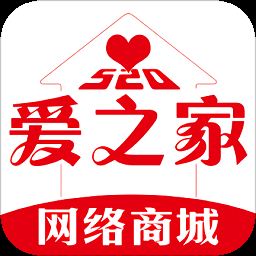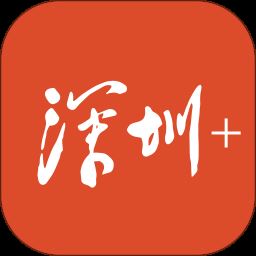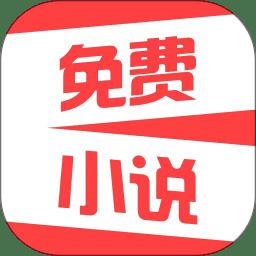abp(net core)+easyui+efcore实现仓储管理系统——出库管理之一(四十九)
DotNet菜园 人气:1abp(net core)+easyui+efcore实现仓储管理系统目录
abp(net core)+easyui+efcore实现仓储管理系统——EasyUI前端页面框架 (十八)
一.前言
出库单的功能。能学习了出库单管理之后,WMS的 最基本的功能算是完成了。当然一个成熟的WMS还包括了盘点,报表,策略规则,移库功能及与其他系统(ERP、TMS等)的接口,实现无缝集成,打破信息孤岛,让数据实时、准确和同步。
二、出库单的流程
1.一般情况下会有一个前置的OMS系统——即订单管理系统。主要功能之一是由客户填写订单。
2.客户把订单下第三方物流公司时,第三方物流公司会生成出货单推送到仓库时,系统会自动生成拣货单,理货员根据拣货单拣货,并制作出库单,然后打印标签,粘贴条码标签,分配托盘,核验条码标签,货物装箱,订舱出库,并在系统中对出库单进行审核通过。整个流程如下图。
当然我们接下来要实现的出库单功能,没有这么复杂。
三、创建出库单实体
1. 做为一个出库单,在数据库中一般存在两张表,表头OutStockOrder,表体OutStockDetail
2.在Visual Studio 2017的“解决方案资源管理器”中,右键单击“ABP.TPLMS.Core”项目的“Entitys”文件夹,在弹出菜单中选择“添加” >
> “类”。 将类命名为 OutStockOrder,然后选择“添加”。
3.创建OutStockOrder类继承自Entity<int>,通过实现审计模块中的IHasCreationTime来实现保存创建时间。代码如下:
using Abp.Domain.Entities;
using Abp.Domain.Entities.Auditing;
using System;
using System.Collections.Generic;
using System.ComponentModel.DataAnnotations;
using System.Text;
namespace ABP.TPLMS.Entitys
{
public class OutStockOrder: Entity<int>, IHasCreationTime
{
public const int MaxLength = 255;
public OutStockOrder()
{
No = string.Empty;
CustomerCode = string.Empty;
CustomerName = string.Empty;
WarehouseNo = string.Empty;
DeliveryNo = string.Empty;
TallyClerk = string.Empty;
TallyTime = string.Empty;
CreationTime = DateTime.Now;
Oper = string.Empty;
Checker = string.Empty;
CheckTime = string.Empty;
Gwt = 0;
Nwt = 0;
PackageQty = 0;
OwnerCode = string.Empty;
OwnerName = string.Empty;
Remark = string.Empty;
Status = 0;
PreOutStockTime = string.Empty;
}
[StringLength(50)]
[Required]
public string No { get; set; }
/// <summary>
/// 客户名称
/// </summary>
[StringLength(MaxLength)]
[Required]
public string CustomerName { get; set; }
/// <summary>
/// 车牌号
/// </summary>
public string VehicleNo { get; set; }
/// <summary>
/// 客户代码
/// </summary>
[StringLength(50)]
[Required]
public string CustomerCode { get; set; }
/// <summary>
/// 收货人代码
/// </summary>
public string ConsigneeCode { get; set; }
/// <summary>
/// 收货人
/// </summary>
public string Consignee{get ;set;}
/// <summary>
/// 收货人社会信用代码
/// </summary>
public string ConsigneeSCCD { get; set; }
/// <summary>
/// 托运人,发货人
/// </summary>
public string Shipper { get; set; }
/// <summary>
/// 托运人,发货人代码
/// </summary>
public string ShipperCode { get; set; }
/// <summary>
/// 托运人,发货人社会信用代码
/// </summary>
public string ShipperSCCD { get; set; }
/// <summary>
/// 通知人
/// </summary>
public string Notify { get; set; }
/// <summary>
/// 通知人代码
/// </summary>
public string NotifyCode { get; set; }
/// <summary>
/// 通知人社会信用代码
/// </summary>
public string NotifySCCD { get; set; }
/// <summary>
/// 出货单号
/// </summary>
public string DeliveryNo { get; set; }
/// <summary>
/// 仓库号
/// </summary>
public string WarehouseNo { get; set; }
/// <summary>
/// 货主
/// </summary>
[StringLength(MaxLength)]
[Required]
public string OwnerName { get; set; }
public decimal Gwt { get; set; }
public decimal Nwt { get; set; }
public int PackageQty { get; set; }
/// <summary>
/// 理货时间
/// </summary>
[StringLength(20)]
public string TallyTime { get; set; }
/// <summary>
/// 理货员
/// </summary>
[StringLength(50)]
public string TallyClerk { get; set; }
[StringLength(50)]
public string Oper { get; set; }
public int Status { get; set; }
[StringLength(50)]
public string OwnerCode { get; set; }
/// <summary>
/// 预计出库时间
/// </summary>
[StringLength(20)]
public string PreOutStockTime { get; set; }
/// <summary>
/// 审核人
/// </summary>
[StringLength(50)]
public string Checker { get; set; }
[StringLength(20)]
public string CheckTime { get; set; }
[StringLength(1000)]
public string Remark { get; set; }
public DateTime CreationTime { get; set; }
[StringLength(20)]
public string LastUpdateTime { get; set; }
[StringLength(50)]
public string LastOper { get; set; }
}
}
using Abp.Domain.Entities;
using Abp.Domain.Entities.Auditing;
using System;
using System.Collections.Generic;
using System.ComponentModel.DataAnnotations;
using System.ComponentModel.DataAnnotations.Schema;
using System.Text;
namespace ABP.TPLMS.Entitys
{
public class OutStockOrderDetail : Entity<int>, IHasCreationTime
{
public const int MaxLength = 255;
public OutStockOrderDetail()
{
this.Qty = 0;
this.CargoCode = string.Empty;
this.CargoName = string.Empty;
this.Brand = string.Empty;
this.Country = string.Empty;
this.CreationTime = DateTime.Now;
this.Curr = string.Empty;
this.GrossWt = 0;
this.Height = 0;
this.HSCode = string.Empty;
this.Length = 0;
this.SecdLawfQty = 0;
this.LawfQty = 0;
this.NetWt = 0;
this.Package = string.Empty;
this.Price = 0;
this.Spcf = string.Empty;
this.Unit = string.Empty;
this.InStockNo = string.Empty;
this.LawfUnit = string.Empty;
this.Vol = 0;
this.Width = 0;
this.LawfUnit = string.Empty;
this.SecdLawfUnit = string.Empty;
this.Batch = string.Empty;
this.InStockOrderDetailId = 0;
}
public int SupplierId { get; set; }
[MaxLength(50)]
public string CargoCode { get; set; }
[MaxLength(10)]
public string HSCode { get; set; }
[MaxLength(MaxLength)]
public string CargoName { get; set; }
[MaxLength(MaxLength)]
public string Spcf { get; set; }
[MaxLength(20)]
public string Unit { get; set; }
/// <summary>
/// 目的国
/// </summary>
[MaxLength(20)]
public string DestCountry { get; set; }
/// <summary>
/// 原产国
/// </summary>
[MaxLength(20)]
public string Country { get; set; }
[MaxLength(50)]
public string Brand { get; set; }
[MaxLength(20)]
public string Curr { get; set; }
[MaxLength(20)]
public string Package { get; set; }
public decimal Length { get; set; }
public decimal Width { get; set; }
public decimal Height { get; set; }
public decimal Vol { get; set; }
public decimal Price { get; set; }
public decimal TotalAmt { get; set; }
public decimal GrossWt { get; set; }
public decimal NetWt { get; set; }
public DateTime CreationTime { get; set; }
[MaxLength(20)]
public string InStockNo { get; set; }
public int InStockOrderDetailId { get; set; }
public decimal Qty { get; set; }
public decimal LawfQty { get; set; }
public decimal SecdLawfQty { get; set; }
[MaxLength(20)]
public string LawfUnit { get; set; }
[MaxLength(20)]
public string SecdLawfUnit { get; set; }
[MaxLength(20)]
public string Batch { get; set; }
public string Loc { get; set; }
}
}
5.定义入库单的实体之后,我们去“ABP.TPLMS.EntityFrameworkCore”项目中的“TPLMSDbContext”类中定义实体对应的DbSet,以应用Code First 数据迁移。添加以下代码
using Microsoft.EntityFrameworkCore;
using Abp.Zero.EntityFrameworkCore;
using ABP.TPLMS.Authorization.Roles;
using ABP.TPLMS.Authorization.Users;
using ABP.TPLMS.MultiTenancy;
using ABP.TPLMS.Entitys;
namespace ABP.TPLMS.EntityFrameworkCore
{
public class TPLMSDbContext : AbpZeroDbContext<Tenant, Role, User, TPLMSDbContext>
{
/* Define a DbSet for each entity of the application */
public TPLMSDbContext(DbContextOptions<TPLMSDbContext> options)
: base(options)
{
}
public DbSet<Module> Modules { get; set; }
public DbSet<Supplier> Suppliers { get; set; }
public DbSet<Cargo> Cargos { get; set; }
public DbSet<Org> Orgs { get; set; }
public virtual DbSet<InStockOrder> InStockOrder { get; set; }
public virtual DbSet<InStockOrderDetail> InStockOrderDetail { get; set; }
public virtual DbSet<InStockOrderDetailLoc> InStockOrderDetailLoc { get; set; }
public virtual DbSet<OutStockOrder> OutStockOrder { get; set; }
public virtual DbSet<OutStockOrderDetail> OutStockOrderDetail { get; set; }
}
}
6.从菜单中选择“工具->NuGet包管理器器—>程序包管理器控制台”菜单。
7. 在PMC中,默认项目选择EntityframeworkCore对应的项目后。输入以下命令:Add-Migration AddEntityOutStock,创建迁移。如下图。
8. 在上面的命令执行完毕之后,创建成功后,会在Migrations文件夹下创建时间_AddEntityOutStock格式的类文件,这些代码是基于DbContext指定的模型。如下图。
9.在程序包管理器控制台,输入Update-Database,回车执行迁移。执行成功后,如下图。
10. 在SQL Server Management Studio中查看数据库,OutStockOrder、OutStockOrderDetail两张表创建成功。
加载全部内容
 爱之家商城
爱之家商城 氢松练
氢松练 Face甜美相机
Face甜美相机 花汇通
花汇通 走路宝正式版
走路宝正式版 天天运动有宝
天天运动有宝 深圳plus
深圳plus 热门免费小说
热门免费小说